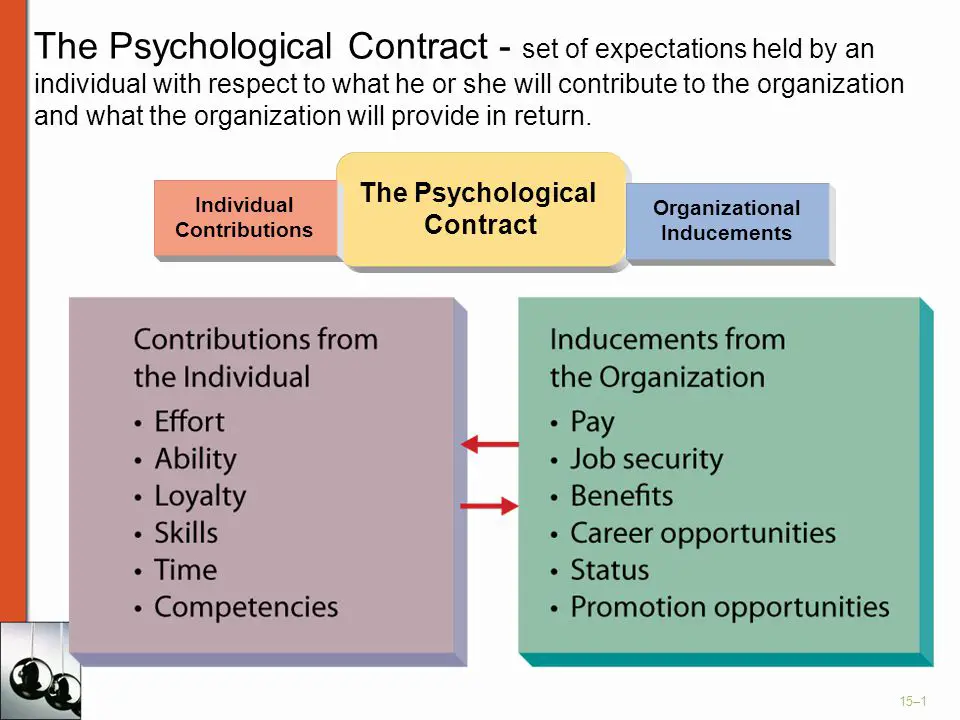Psychological Contract
Most people have a basic understanding of a contract. Whenever we buy a car or sell a house, for example, both buyer and seller sign a contract that specifies the terms of the agreement. A psychological contract is similar in some ways to a standard legal contract but is less formal and well defined.
Psychological contract is the overall set of expectations held by an individual with respect to what he or she will contribute to the organization and what the organization will provide in return.
Thus a psychological contract is not written on paper, nor are all of its terms explicitly negotiated.
 Figure X-1. A Psychological Contract Illustration
Figure X-1. A Psychological Contract Illustration
|
The essential nature of a psychological contract is illustrated in Figure X-1. The individual makes a variety of “contributions to the organization.
Contributions such as effort, skills, ability, time, loyalty, and so forth, are what an employee offers to the organization.
These contributions presumably satisfy various needs and requirements of the organization.
In other words, because the organization may have hired the person because of her or his skills, it is reasonable for the organization to expect that s/he will subsequently display those skills in the performance of her job.
In return for these contributions, the organization provides “inducements to the individual.
Inducements are what an organization provides to the employee, such as pay, career opportunities, job security, status, and so forth.
Some inducements, like pay and career opportunities, are tangible rewards. Others, like job security and status, are more tangible. Just as the contributions available from the individual must satisfy the needs of the organization, the inducements offered by the organization must serve the needs of the individual.
Thus, if a person accepts employment with an organization because s/he thinks s/he will earn an attractive salary and have an opportunity to advance, s/he will subsequently expect that those rewards will actually be forthcoming.
If both the individual and the organization perceive that the psychological contract is fair and equitable, they will be satisfied with the relationship and will likely continue it. On the other hand, if either party sees an imbalance or inequity in the contract, it may initiate a change.
For example, the individual may request a pay raise or promotion, decrease his or her contributed effort, or look for a better job elsewhere. The organization can also initiate change by requesting that the individual improve his skills through training, transfer the person to another job, or terminate the person’s employment altogether.
A basic challenge faced by the manager, then, is to fully understand psychological contracts. The manager must ensure that the organization is getting value from its employees.
At the same time, the manager must be sure that the organization is providing employees with appropriate inducements. If the organization is underpaying its employees for their contributions, for example, they may perform poorly or leave for better jobs elsewhere.
On the other hand, if they are being overpaid relative to their contributions, the organization is incurring unnecessary costs. Effective interpersonal skills can help managers understand psychological contract and enable him or her to more effectively explain and implement such contracts.
- Research data for this work have been adapted from the manual:
- Management Skills: Assessment and Development By Ricky Griffin, David Van Fleet.

